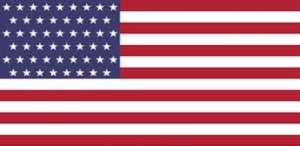UNITED SIKHS Joins the National Legal and Civil Rights Community Calling for the Reversal of the Racist “Insular Cases”

![]()
The Cases For Why the Insular Cases Must be Reversed
Dated: October 31, 2022
New York, NY
Following the Spanish-American war more than 124 years ago, the U.S. annexed various inhabited territories. The people in these U.S. territories share unjust political, human and civil rights deprivations with other disenfranchised people of color worldwide. They have been denied political recognition and participation for more than a century based on racial animus.
Today, UNITED SIKHS again calls on Congress, the Biden-Harris Administration and the U.S. Supreme Court to reverse the Insular cases. These cases, which were decided by the U.S. Supreme Court beginning in 1901, continue to perpetuate unequal treatment and discrimination against U.S. citizens living in the U.S. Territories on the basis of race and ethnicity.
In August, 2022, the UNITED SIKHS’ International Civil & Human Rights Advocacy Directorate (ICHRA) issued a letter to the United States Attorney’s Office stating that the Department of Justice should support reversal of the Insular cases. The letter stated that UNITED SIKH joins the national legal and civil rights communities to “rebuke the categorization of people living in the U.S. Territories as inferior races” but specifically when this justifies denial of political and social rights to this day.
This letter to the U.S. Attorney General was followed on Monday, October 24. 2022, by a New York City Bar Association’s Puerto Rico Task Force article co-authored by UNITED SIKHS Chief Legal Officer and National Legal Director, Wanda Sanchez Day with title (Residents of U.S. Territories Deserve the Basic Rights of American Citizenship). The Op-Ed was published in the New York Law Journal (NYLJ) and co-authored with the City Bar’s Rule of Law and the Civil Rights Committees.
The NYLJ article was preceded by resolutions of the American Bar Association and the New York State Bar Association calling for reversal of the Insular cases and joins these bar association’s memberships to speak up about the inequitable and undemocratic legacy of these cases. UNITED SIKHS joins in the sentiment expressed by these resolutions.
The Insular cases must be reversed because they have no legitimate place in our legal system. In them, the Supreme Court created the “Territorial Doctrine.” “This doctrine permits Congress to make rules impacting U.S. citizens living in the Territories although they are not entitled to vote for members of Congress who can represent their interest. The Insular cases stand for that “the Constitution does not follow the flag” to the Territories. This means according to the Insular cases that American citizens living in the Territories where the U.S. Congress, President and Supreme Court all exercise sovereignty, who are born American citizens, are not entitled to the equal protection of U.S. law or the same rights generally understood to be the principal benefits of U.S. citizenship because they happen to live in another part of the U.S. That is fiction,” Ms. Sanchez Day stated.
The Insular cases deny the residents of the Territories the full protection of the U.S. Constitution. The residents of these regions have continually helped shape the United States’ image as a globally competitive democracy through their many contributions. We see the inequity in the reasoning in these cases. The undertones of racial animus and discrimination are there.
The Insular cases must be reversed because they stand on rationalizations based on racial and ethnic animus. The Territorial Clause must also be abandoned as U.S. legal doctrine because it is undemocratic and runs contrary to U.S. laws that prohibit unequal treatment or discrimination on the basis of race without exception. For example, in the case of Puerto Rico, the language in the statute where Congress declares that Puerto Ricans are citizens of the United States is clear and unambiguous and presents no exceptions. The Insular cases state otherwise but continue to be followed as “good” law with respect to these same citizens.
In April 2022, the Court decided Vaello-Madero. This is the most recent Supreme Court case to apply the discriminatory rationale in the Insular cases. In that case, the government argued that U.S. citizens residing in Puerto Rico are not entitled to receive Social Security Insurance (SSI). SSI is a federal poverty relief program for disabled and indigent Americans. The Court stated in Vaello-Madero that although Puerto Ricans are citizens of the U.S., Puerto Rico is a territory and not a State and Congress could exclude its residents from the benefits of this federally funded program.
“The Insular Cases were not decided based on need or merit but on the belief in the inferiority of the residents of the Territories. Words like “savage tribes” and “alien races” were used to describe the residents of these regions in order to justify unequal treatment,” Ms. Sanchez Day stated. “The political and social exclusion perpetuated by the Insular cases includes not only the denial of the right to elect officials to Congress but now the denial of the right to participate in poverty relief programs for the most vulnerable citizens with disability living in the Territories. This treatment is undemocratic and unjust,” she stated.
In the course of more than a century, beginning in 1901 with the first Insular case, Downes, the U.S. Supreme Court stated that citizenship of those living in the Territories does not confer the same or all the Constitutional rights usually associated with U.S. citizenship. The rationale is simply that Congress could ignore the Equal Protection clause in the Constitution and exclude the citizen-residents of a Territory from the benefits of Constitutional mandates and federal relief programs although the Constitution would prohibit Congress from doing so in the mainland States.
It’s worth noting that in the Vaello-Madero case, the government argued that people in the U.S. territory are not entitled to participate in the SSI program because they do not pay federal taxes. However, the disabled, indigent residents living in other States that may receive SSI do not pay federal taxes either.
Recently, the Supreme Court passed on an opportunity to grant a petition for a writ of certiorari in the matter of Fitisemanu v. United States. That case called for reversal of the Insular cases. The Court chose to forego the opportunity to decide this important issue and turn the page on racist precedent found in the Insular Cases that may not come again soon.
“The residents of the Territories affected by these racist precedents are mostly people of color,” states Manvinder Singh, UNITED SIKHS Director of Advocacy. “This is an injustice against people based on their race and ethnicity who are U.S. citizens and who have fought for the U.S. through every war since the Spanish American War of 1898. We must stand today with the national legal and civil rights community calling for the end to this racism.”
“Upholding democratic principles and fairness in our government’s application of laws should concern us all. The alternative is to live in a society that turns a blind eye to racially motivated injustice,” states Manvinder Singh.
UNITED SIKHS’ mission is to fiercely advocate for all disenfranchised minority communities. We admire those who stand bravely to seek equality and justice for all.
We thank and appreciate the support of our donors as we strive to recognize the human race as one.
Gurpreet Singh
Executive Director
UNITED SIKHS



